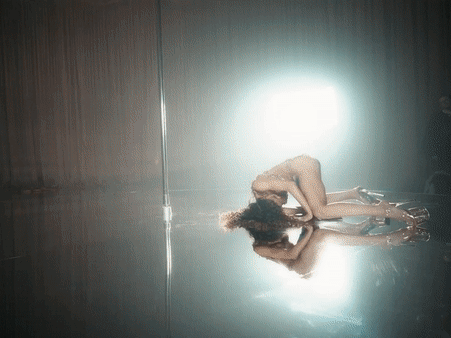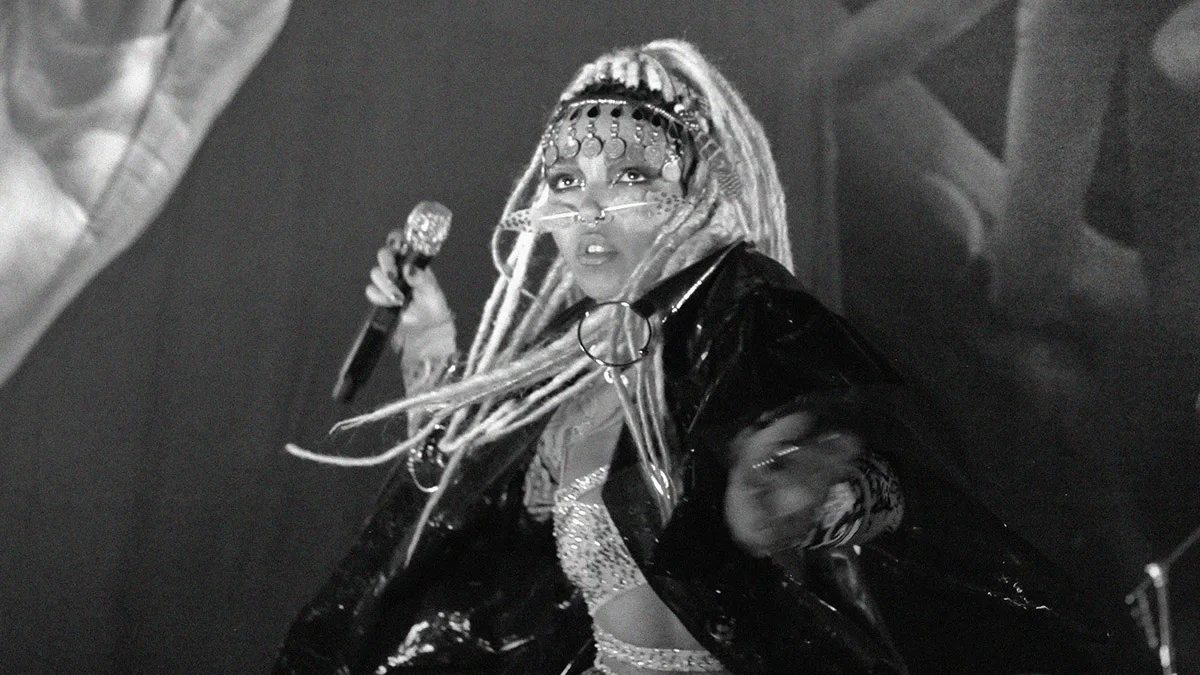
We Are The Womxn — FKA twigs’ journey to Atlanta to meet spiritual healers
FKA twigs’ journey to Atlanta to meet spiritual healers
The evolution of FKA twigs’ artistry is evident not just in her music, but also her performances and the themes that inspire her multifaceted creativity. Last year the artist continued this exploration by way of a poignant trip to Atlanta, where she met a number of womxn whose wisdom and practices around spiritual healing touched on themes prevalent in her latest album, Magdalene. Atlanta-based writer Clarissa Brooks speaks to FKA twigs about the most recent phase of her journey, and why healing is such a pivotal part of her creative process.
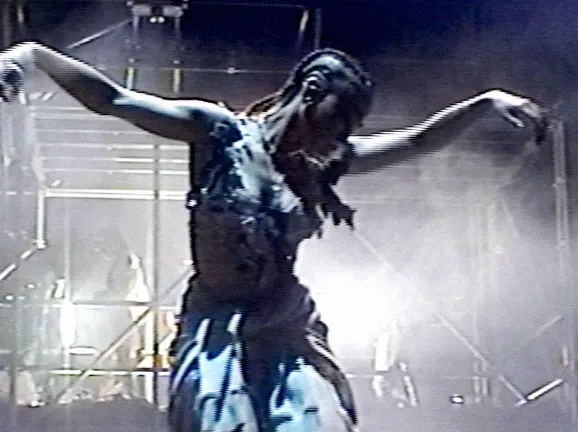
Healing as a cultural practice means something to Black womxn. It’s breaking the hold that subjugation has on Black life, and for FKA twigs, healing is a public spectacle that she is laying claim to.
In October of 2019, before releasing her second studio album, Magdalene, FKA twigs continued her journey into her own personal healing by travelling to Atlanta, Georgia to perform a sacred moon dance with known spiritual healer Queen Afua live at Afropunk. The experience proved to be formative for the musician, deepening her understanding of both herself and her womanhood.
“This essential piece is about resurrecting the womxn...because if you elevate the womxn, you elevate the family, then we can all transform and birth a new world,” says Afua on how the moon dance was an ancestral awakening to liberation. These sentiments of dynamic healing are crucial to twigs’ Magdalene album and here in Georgia take us not only to the Afropunk stage, but also across town to Blue Flame Lounge. A local and historical strip club in Atlanta, the Blue Flame doesn’t get the same public acclaim as Magic City, but has been the foreground for some of the most important moments in Atlanta hip-hop history. Most recently, in 2016 after a fatal car accident, rapper Shawty Lo’s body was brought to Blue Flame, his favorite club in the city.
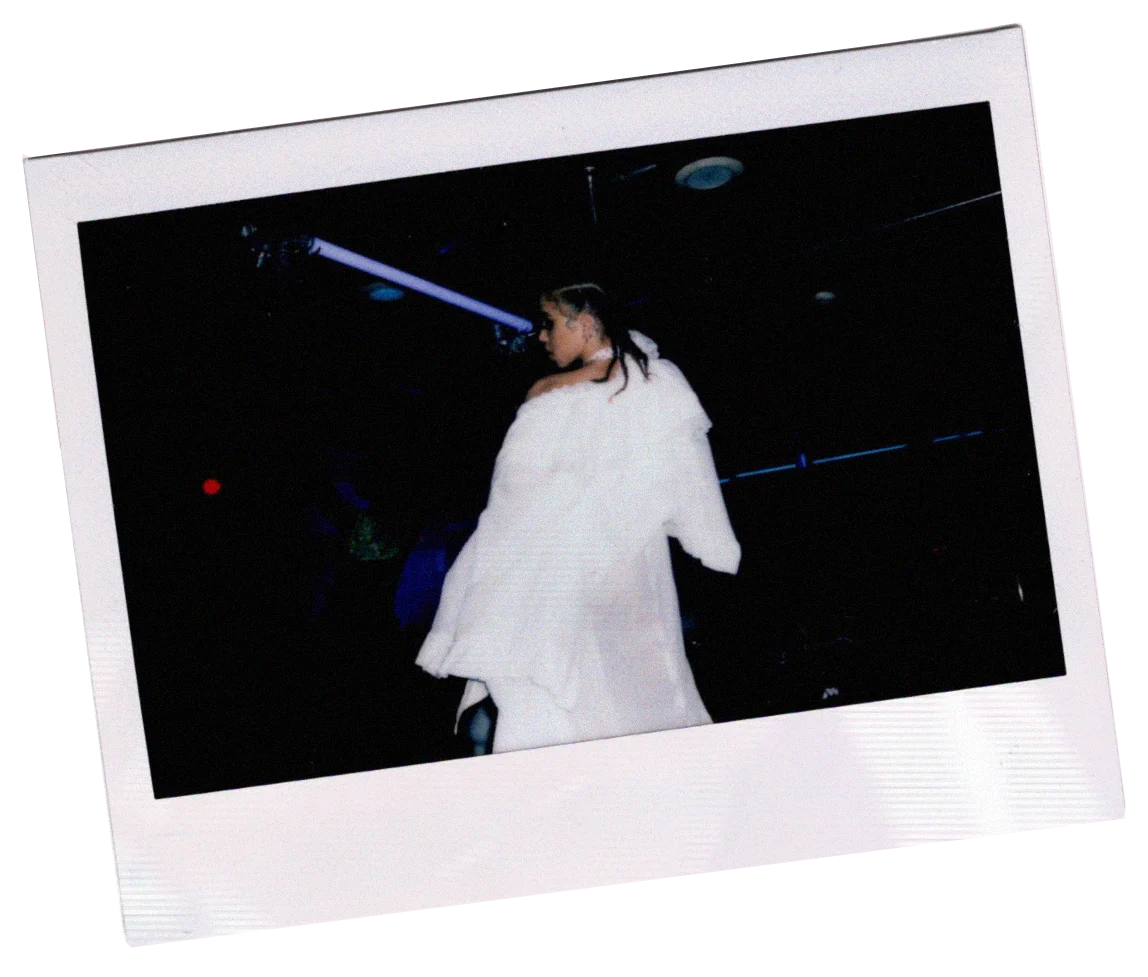
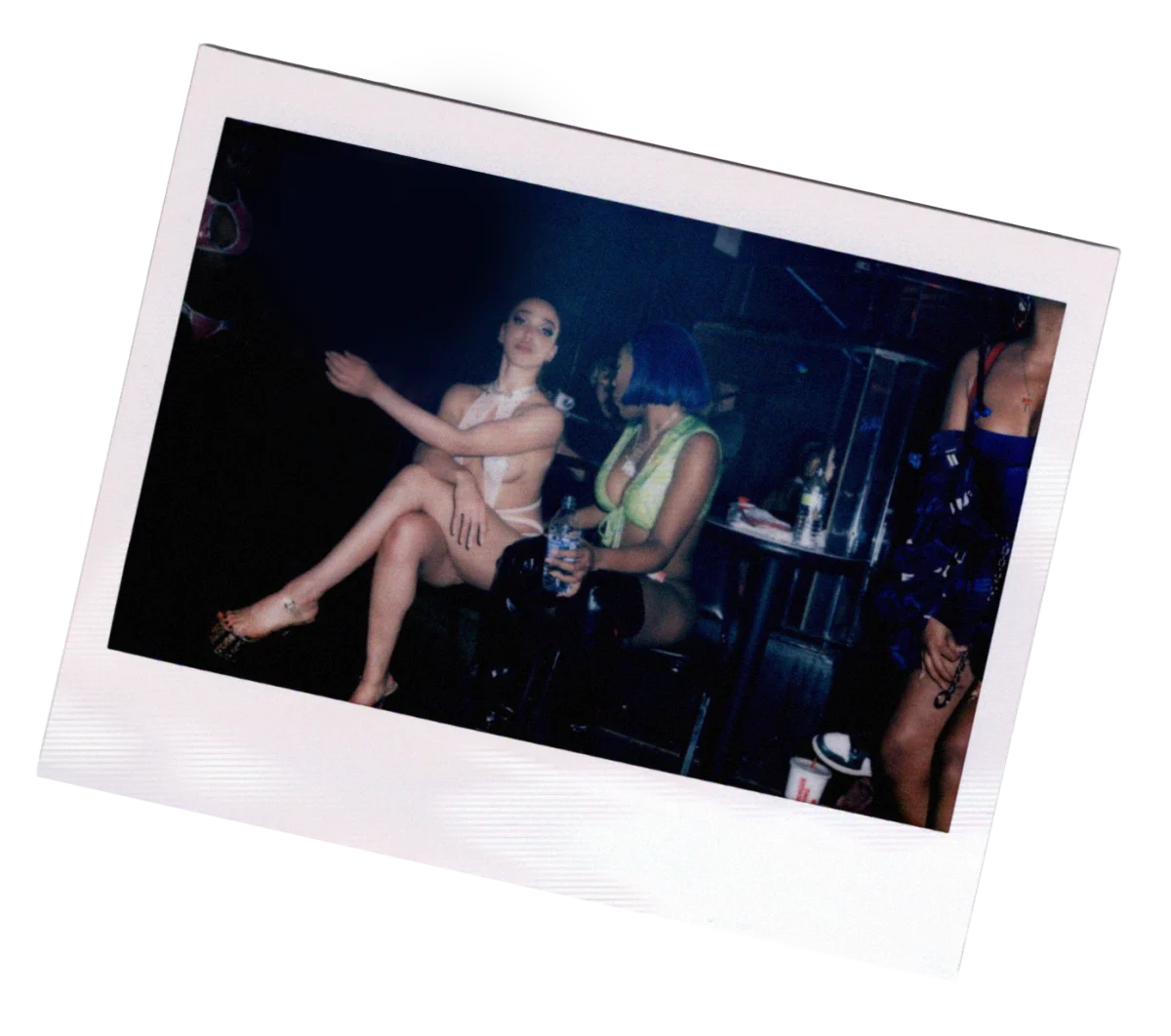
I found it incredibly powerful to see womxn admiring and encouraging each other to dance.
Since learning to pole dance for her critically acclaimed music video Cellophane, twigs has continued her exploration into the art form. In music video history, pole dancing has been traditionally used as a male trope; a symbol of sex, wealth and power in which female empowerment and enjoyment is secondary to male fantasy. But in Cellophane twigs turns pole dancing into something beautiful imbued with vulnerability and strength. And it was this that she wanted to symbolize throughout her latest journey. “I decided to hold the second part of the all-female and femme sacred moon dance at Blue Flame, firstly to honor the heritage of pole dancing, but also to create a matriarchal dominance in a space that's usually filled with, and run by, male energy,” twigs explains.
Pole dancing as an art form and cultural staple in Atlanta isn’t anything new. The city prides itself on its proximity to club culture, while simultaneously heavily policing dancers throughout the city. With pole dancing and stripping associated with the male gaze, twigs used her experience to shift that framing to something else entirely. Blue Flame on that night moved with a different energy. “I found it incredibly powerful to see womxn admiring and encouraging each other to dance and celebrate all different expressions of femininity and the female form,” twigs says. “The space was filled with laughter and joy, something that Queen Afua advocates as a form of healing for the womb.”
Womxn are often pitched against each other for their looks or their assets by the patriarchy, but when left to our own devices we are incredibly healing for each other
Twigs’ method of dissecting the unspoken gray spaces of both being and using her erotic as a healing mechanism has been explored by others before her. But it’s through twigs’ music that this school of thought is finding renewed conversation. For decades, scholars, artists, and thought leaders have been theorizing on why Black womxn specifically are vital to the practice of healing. Most notably scholar and activist Audre Lorde in her canonical text Uses of the Erotic, which speaks clearly on how the erotic must be used to build the new world.
“The erotic is a resource within each of us that lies in a deeply female and spiritual plane, firmly rooted in the power of our unexpressed or unrecognized feeling,” Lorde wrote in her 1984 essay The Master’s Tools Will Never Dismantle the Master’s House. “In order to perpetuate itself, every oppression must corrupt or distort those various sources of power within the culture of the oppressed that can provide energy for change. For women, this has meant a suppression of the erotic as a considered source of power and information within our lives.”


The most essential elements of FKA twigs’ sound on Magdalene and her previous records are not only her ability to shapeshift, but to also be accepting of the change that occurs when she does. As writer Octavia Butler writes in her 1993 novel Parable of the Sower, “All that you touch you change. All that you change changes you. The only lasting truth is change.” In twigs’ search for truth within her own evolution be that physical or spiritual – the theme of healing returns again and again.
“These movements are based on the first movements from the first healers, who were at the beginning of civilization. Whatever movement you make is perfect because it’s your language,” says Queen Afua in the midst of the moon dance with twigs and other Black womxn on the Afropunk stage.
All that you touch you change. All that you change changes you
“For the past few years I’ve been curious about , and actively trying to not only heal but to also set free the ancestral traumas I carry with me,” says twigs. “These traumas don't belong to me, and should not hold me back, but they do...as a woman of color, the lineage of pain within my bloodline can be deafening, like tinnitus that only I can hear, so to be able to acknowledge my search for healing and peaceful silence amongst womxn who may feel the same was incredibly comforting.”
Nothing can be done in isolation, as Lorde says most famously in her 1978 essay Uses of The Erotic: The Erotic as Power: “As women, we have been taught either to ignore our differences or to view them as causes for separation and suspicion rather than as forces for change. Without community, there is no liberation, only the most vulnerable and temporary armistice between an individual and her oppression.”

As twigs explores the boundaries and history of pole dancing, a commonality that emerges in both her work as a performer and her engagement with her fans is the building of a community. FKA twigs and her team center young people who are creative beings at their core. Even in a space like Blue Flame, twigs is electric on the small stage. We see her backstage with other Blue Flame dancers who bring her into a world of care and grace that feels just as electric. The buzz of female energy is almost palpable.
“I’m actually pretty shy, but I felt so encouraged to dance and enjoy my body by all the amazing womxn who came together,” twigs says of the experience. “I particularly bonded with one dancer at Blue Flame Kharisma. She had such vibrant energy and at the beginning of the night she called the other girls on to the stage to be admired and supported in their expression. My experience at the Blue Flame solidified that, although historically womxn are often pitched against each other for their looks or their assets by the patriarchy, when left to our own devices we are incredibly nurturing and healing for each other.”
As a womxn of color, the lineage of pain within my bloodline can be deafening
Whether it be a public stage, a closed nightclub or an altar, Black people have been practicing healing and forms of spiritual work since before slavery, before oppressive systems took what was never theirs to begin with. Here Queen Afua, twigs and Kharisma provide the world with a glimpse of how that ancestral knowledge they have been denied for centuries is still there.
As the writer and activist Alexis Pauline Gumbs poses to us all, “What do Black women do at the end of the world? They give birth.”
Support sex workers through the Sex Worker Advocacy and Resistance Movement, Lysistrata Mutual Care Collective and Fund and East London Stripper Collective.



